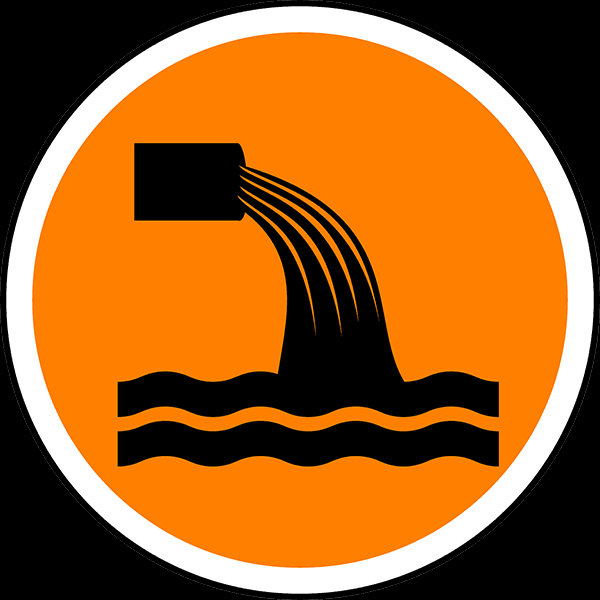The Buzz on Reclaim Waste
Table of ContentsHow Reclaim Waste can Save You Time, Stress, and Money.Facts About Reclaim Waste Revealed5 Easy Facts About Reclaim Waste ExplainedSee This Report about Reclaim WasteReclaim Waste Can Be Fun For Everyone
Discover the kinds, occurrences, and kinds of liquid waste. Residential sewer waste refers to the waste and products from a property septic storage tank. This kind of waste is created by human beings in homes, schools, and other buildings. This only consists of sewage-disposal tanks that have a drainpipe field. The correct monitoring and disposal of residential sewage waste call for fluid waste to be moved to a sewer treatment plant where the appropriate methods and tools are related to purify and take care of waste.
Commercial waste typically includes potential threats, such as flammable materials or a blend of liquid and strong waste products, and calls for a more sophisticated and in-depth disposal process. The disposal of industrial waste typically involves the purification of waste before transportation to make sure safe and appropriate disposal. Industrial waste is created from by-products and drainage of commercial procedures and manufacturing.
This sort of waste can not utilize the very same sewage monitoring transportation or procedures as septic or business fluids. The hazardous waste monitoring procedure needs the inspection and screening of fluid waste before it undertakes the disposal process (liquid waste removal melbourne). Drainage waste is the liquid waste that originates from runoff and excess stormwater in extremely booming areas or cities
Runoff waste can cause contamination and flooding otherwise handled effectively. Find out more concerning sewage system cleansing and waste monitoring. Ensuring appropriate waste administration can stop disasters and lower ecological injury. Both individuals in residential settings and experts in commercial or manufacturing industries can benefit from comprehending the procedures and policies of liquid waste administration.
The Single Strategy To Use For Reclaim Waste
Get in touch with PROS Solutions today to discover our waste administration and disposal services and the correct methods to take care of the fluid waste you generate.
(https://www.storeboard.com/reclaimwaste2)Do you understand what takes place to your water when you end, purge the toilet or drain pipes the cleaning maker? No? Well, it deserves recognizing. This so-called 'wastewater' is not just an essential resource but, after therapy, will be launched to our land, waterways or the sea. Made use of water from commodes, showers, bathrooms, kitchen sinks, washings and industrial procedures is called wastewater.

water utilized to cool down machinery or clean plant and tools). Stormwater, a type of wastewater, is runoff that flows from farming and city locations such as roofings, parks, yards, roads, courses and seamless gutters into stormwater drains, after rain. Stormwater moves untreated directly to neighborhood creeks or rivers, eventually getting to the sea.
Reclaim Waste Fundamentals Explained
In Queensland, many wastewater is dealt with at sewer therapy plants. Wastewater is carried from domestic or industrial sites through a system of sewers and pump stations, understood as sewerage reticulation, to a sewage therapy plant.
The Division of Natural Resources encourages city governments regarding handling, operating and maintaining sewerage systems and therapy plants. In unsewered areas, regional federal governments may call for householders to install individual or home sewer treatment systems to treat domestic wastewater from commodes, cooking areas, restrooms and washings. The Department of Natural Resources authorises using household systems when they are confirmed to be effective.
Many stormwater receives no treatment. In some new subdivisions, treatment of some stormwater to eliminate litter, sand and gravel has actually started using gross contaminant traps. Wastewater therapy takes place in four phases: Gets rid of solid issue. Bigger solids, such as plastics and other items incorrectly discharged to drains, are gotten rid of when wastewater is gone through screens.
Wastewater after that flows right into huge storage tanks where solids clear up and are eliminated as sludge. Grease and residue are skimmed from the surface area. Makes use of little living organisms called micro-organisms to damage down and get rid of staying liquified wastes and great bits. Micro-organisms and wastes are included in the sludge. Removes nitrogen and phosphorus nutrients that could cause algal flowers in our waterways and threaten marine life.
The Best Guide To Reclaim Waste
Nutrient elimination is not readily available at all sewage therapy plants because it calls for expensive specialised equipment. Clear liquid effluent produced after treatment might still include disease-causing micro-organisms - liquid waste disposal.

This generally means wastewater has to be dealt with or pollutants gotten rid of prior to it can be released to rivers. A lot of wastewater streams into the sewerage system. Under the Act, city governments provide approvals and licences for ecologically relevant activities (Ages) including wastewater releases that might have a neighborhood impact. The division administers approvals and permits to Ages entailing wastewater releases that could have a regional or statewide effect.
Not known Facts About Reclaim Waste
Otherwise, examples are considered laboratory analysis. Typically lots of tests are required to establish the levels of each of the various toxins such as oils, hefty metals and chemicals in water. Tracking supplies accurate information concerning water top quality and can confirm that permit problems are being satisfied. The info obtained with tracking offers the basis for making water high quality decisions.